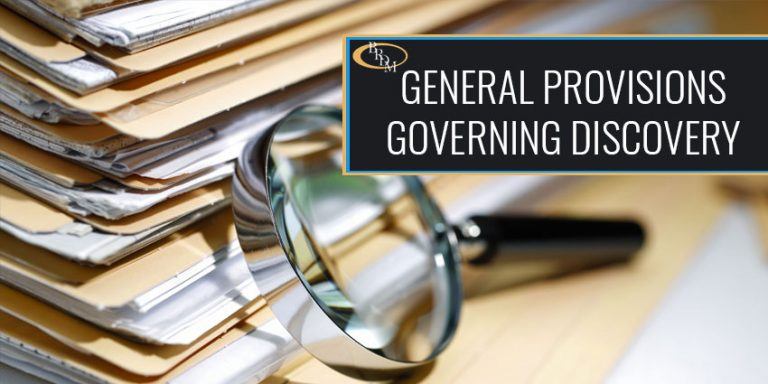Updated February 27, 2025 by Alec Waid
Table of Contents
General Discovery
Discovery is the stage of litigation where the parties seek information from the other party.The Florida Rules of Civil Procedure, Rule 1.280, sets forth the general provisions governing discovery in the State of Florida.
Types of Discovery
Rule 1.280 provides that parties may obtain discovery by one or more of the following methods:- Depositions upon oral examination or written questions;
- Written interrogatories;
- Production of documents or things or permission to enter upon land or other property for inspection and other purposes;
- Physical and mental examinations; and
- Requests for admission.
Standard
Parties may obtain discovery regarding any non-privileged matter which is relevant to the subject matter of the pending action. It is not a ground for objection that the information sought will be inadmissible at trial if the information sought appears reasonably calculated to lead to the discovery of admissible evidence.Privilege
When a party withholds information which is otherwise discoverable under the rules on the basis that the information is privileged or otherwise subject to protection (such as trial preparation material or work product), the responding party must make the claim expressly and describe the nature of the document in such a manner that will enable the other party to assess the applicability or the privilege or protection (without revealing the privileged information itself). Typically, such a claim is made pursuant to a privilege log.Motions for Protective Order
If a party or person maintains that responding to the discovery sought will result in potentially abusive action, then the party or person will file a motion for protective order. The Florida Rules of Civil Procedure 1.280 sets forth how a party can move for a protective order. Upon a motion by a party or the person for whom discovery is sought, and upon good cause shown, the court may enter an order protecting the party or person from annoyance, embarrassment, oppression, undue burden, or undue expense that justice requires, including the following:- “that the discovery not be had;
- that the discovery may be had only on specified terms and conditions, including a designation of the time or place;
- that the discovery may be had only by a method of discovery other than that selected by the party seeking discovery;
- that certain matters not be inquired into, or that the scope of the discovery be limited to certain matters;
- that discovery be conducted with no one present except persons designated by the court;
- that a deposition after being sealed be opened only by order of the court;
- that a trade secret or other confidential research, development, or commercial information not be disclosed or be disclosed only in a designated way; and
- that the parties simultaneously file specified documents or information enclosed in sealed envelopes to be opened as directed by the court. If the motion for a protective order is denied in whole or in part, the court may, on such terms and conditions as are just, order that any party or person provide or permit discovery.”
If the court denies a motion for a protective order in whole or in part, the court may still order that any party or person provide or permit discovery on such terms and conditions as are just.
Electronically Stored Information
The phrase “Electronically Stored Information” refers to electronic documents.
A person may object to the production of discovery of electronically stored information from sources that are not reasonably accessible because of cost or burden. If the party seeking discovery moves to compel the discovery – or if the party responding to the discovery files a motion for protective order – then the person from whom discovery is sought must show that the information sought, or the format requested for production, is not reasonably accessible because of undue burden or cost. If the responding party makes this showing, then the requesting party can show good cause for the production. If the requesting party shows good cause, then the court may still order the production of discovery. The court may also specify conditions of the discovery, including an order that some or all of the expenses incurred by the party producing discovery should be paid by the requesting party.
Pursuant to Florida Rule of Civil Procedure 1.280, in determining any motion involving the discovery of electronically stored information, the court must limit the frequency or the extent of the discovery otherwise allowed by the rules if the court determines that:
- “the discovery sought is unreasonably cumulative or duplicative, or can be obtained from another source or in another manner that is more convenient, less burdensome, or less expensive; or
- the burden or expense of the discovery outweighs its likely benefit, considering the needs of the case, the amount in controversy, the parties’ resources, the importance of the issues at stake in the action, and the importance of the discovery in resolving the issues.”



